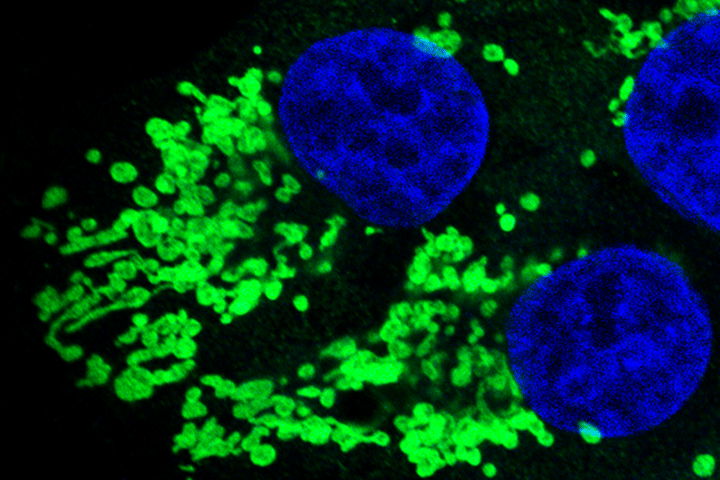A PARP Inhibitor Approval for Pancreatic Cancer

The U.S. Food and Drug Administration (FDA) has granted the PARP-inhibitor olaparib an orphan drug designation for the treatment of patients with pancreatic cancer.
According to the FDA, the Orphan Drug Designation program provides orphan status to drugs and biologics that are defined as those intended for the safe and effective treatment, diagnosis, or prevention of rare diseases or disorders affecting fewer than 200,000 people in the U.S., or that affect more than 200,000 persons but are not likely to make more money than the cost of development. In addition, the drug developers are not expected to recover the costs of developing and marketing drugs that fall into this category.
A Type of Targeted Therapy
PARP inhibitors are a class of drugs that are being studied in various clinical trials for pancreatic cancer. Several of these agents have already been approved for treatment of breast and ovarian cancers, among others, that carry specific types of inherited mutations which seem to make PARPs especially effective. These mutations include BRCA1 and BRCA2, as well as other mutations.
PARP stands for poly ADP-ribose polymerase. It’s an enzyme that plays a significant role in DNA repair. By blocking (or inhibiting) this enzyme with a PARP-inhibiting drug, DNA inside the cancerous cells is less likely to be repaired, leading to cell death and possibly a slow-down or stoppage of tumor growth. Tumors may also have an increased sensitivity to chemotherapy. This type of treatment is called targeted therapy, because it attacks only the cancer cells and not the normal cells.
POLO Trial
Olaparib (brand name Lynparza, made by AstraZeneca and Merck) is currently being evaluated as maintenance therapy in an ongoing, randomized, multicenter, double-blind, placebo-controlled phase III trial called POLO. In this trial, researchers are studying patients with germline BRCA1/2-mutated metastatic pancreatic cancer whose disease has not progressed following first-line platinum-based chemotherapy.
A total of 145 patients have been randomized to receive either oral olaparib tablets at 300 mg twice daily as maintenance therapy or a placebo twice daily. Treatment will continue until progression of the disease is seen on radiological scans. Participants will continue to be followed for second progression every eight weeks, and then for survival until final analysis.
Eligible patients were previously treated for metastatic disease and have not progressed following completion of at least 16 weeks of first-line platinum-based chemotherapy. Additionally, patients must have a known deleterious or suspected deleterious germline BRCA mutation. Those who were previously treated with a PARP inhibitor were excluded.
The primary endpoint is progression-free survival. Secondary endpoints are overall survival, time from randomization to second progression or death, objective response rate, disease control rate, safety, and tolerability. Results from this study are expected in 2019.
Ongoing Work
Other trials are showing some early successes. For example, an international team of researchers led by the Perelman School of Medicine and the Basser Center for BRCA at the University of Pennsylvania reported their findings in JCO Precision Oncology. They are studying a PARP inhibitor called rucaparib, which was approved by the FDA for the treatment of women with ovarian cancer who have recurrent disease or received prior therapies. It showed its potential efficacy in previously treated pancreatic patients with BRCA mutations in a phase II clinical trial.
Overall, a clinical benefit was observed in 32 percent of patients (6 of 19) treated with rucaparib, and 45 percent of patients (4 of 9) who had received only one prior chemotherapy for locally advanced or metastatic disease. Nine patients had progressive disease, and three were not evaluable for response. The objective confirmed response rate, the primary endpoint for the study, was 16 percent (3 of 19).
The trial included 11 men and eight women, with a median age of 57. Twenty-one percent of the patients had BRCA1 mutation-associated pancreatic cancer, while 79 percent were associated with BRCA2 mutations. Of the 19 patients treated, four had responses and two additional patients had stable disease.
Rucaparib is also being studied as a maintenance therapy at the University of Pennsylvania, while another study at Georgetown University’s Lombardi Comprehensive Cancer Center is looking at the PARP inhibitor veliparib in combination with 5-fluorouracil and oxaliplatin (modified FOLFOX-6) in patients with metastatic pancreatic cancer.






